Resident Doctor, Department of Internal Medicine, McGill University, Montreal, Quebec, Canada
"My MPH program widened my horizon, equipped me with necessary skills to understand what screening and treatment mean at population level. It reminded me that although treating one patient is very important, thinking about the society as a whole is also crucial. Cultural sensitivity, understanding cost-effectiveness, and appreciating the process of behavior change were few among many other concepts that I think made me a better doctor."
Medical Student (M3), Rush University in Chicago, IL
“As I have come into the clinical years of my medical training, I use the skills and knowledge I acquired as a student of public health at the University of Miami to communicate medical information with my patients, and to inform my own understanding of disease processes beyond the microscopic and beyond the gross pathology of the disease. My MPH has given me the framework in which I can understand the social, economic, and political forces that promote disease and healing and the ways in which medicine and public health interact.”
Research Associate, The National Health Care for the Homeless Council (NHCHC)
“As a Research Associate at the National Health Care for the Homeless Council (NHCHC), I provide support for the Health Care for the Homeless (HCH) field by developing and disseminating knowledge, increasing the visibility of HCH-related research, engaging in research design and coordination on specific subpopulations experiencing homelessness, and improving its capacity to apply findings to improve health outcomes & manage or potentially end homelessness. What I enjoy most about this job is that it goes beyond just trying to publish, and instead provides a team that works together to inform interventions, overall knowledge, and training and technical assistance.”
HIV Outreach Coordinator, Genesis Community Health, Boynton Beach, FL
“I was prepared very well for my current position; I am constantly referring back to what we learned in our lectures: “is this program evidenced-based,” “How effective will this be,?” and “What data do we need to collect?” All of these are phrases that I have used as an HIV Outreach Coordinator in order to create an effective program.”
Surveillance Epidemiologist, Marion County Public Health Department, Indianapolis, IN
“One great experience I had that got me interested in what I’m doing now was interning at the CDC Global AIDS Program station in Guatemala. It was while working on a project there that I realized the data public health officials use, to make decisions that will impact program activities, can be compromised by numerous quality issues. Correcting and preventing these data quality issues is likely to improve the outcomes of decisions based on this data. My advice to students would be to think about how public health data is collected in resource-limited settings where supervision and staff support may be inadequate. Think about what can go wrong and how technology and good operational practices could help to alleviate this unfortunate, but common, situation.”
Epidemiologist/Biological Scientist III (Bioterrorism and General Surveillance), Florida Department of Health in Miami-Dade, Miami, FL
“I work in the Bioterrorism unit at the Florida Department of Health in Miami-Dade. I conduct general infectious disease surveillance and help with outbreak investigations. I enjoy learning about new diseases and applying that knowledge towards educating the public on disease prevention.”
Doctoral Student, Ph.D. in Public Health, Georgia State University, School of Public Health, Atlanta, Georgia
"My MPH program widened my horizon, equipped me with necessary skills to understand what screening and treatment mean at population level. It reminded me that although treating one patient is very important, thinking about the society as a whole is also crucial. Cultural sensitivity, understanding cost-effectiveness, and appreciating the process of behavior change were few among many other concepts that I think made me a better doctor."
Associate Director of Development Core for the UCLA Center for HIV Identification, Prevention and Treatment Services (CHIPTS); and Core Coordinator of Administrative Core for UCLA CHIPTS Employer or University: University of California, Los Angeles, California
“The MPH program provided a very nurturing environment to learn. The professors and department staff were welcoming and accessible from day one. It really felt like a place where people wanted you to succeed.”
Senior Clinical Research Associate at Eidos Therapeutics
“I liked the people in the program; the professors, program administrators and the students the most. The plethora of opportunities offered to students to collaborate with the program’s educators was unparalleled. This was complemented by the diversity of the city of Miami and the University of Miami’s existing relationships with other notable organizations around the world. Despite my short time with the program, I was able to develop and present my projects to multiple conferences around the nation. The incredible support from my professors and mentors was the best part of my experience in the program. Their guidance has proven valuable in helping me achieve the position in my career today.”
Clinical Subjects Coordinator, University of Michigan, Ann Arbor, Michigan
“My favorite part of the MPH program was the ability to collaborate with peers of varying backgrounds and levels of experience. I feel that I learnt most from the synergetic projects assigned to us. I also enjoyed being able to meet with professors and discuss ideas and obtain information to develop projects. During my time procuring the MPH I was able take an independent study course where I accomplished the publication of a first author manuscript with the help and guidance of three professors of the Public Health Program. Overall, I feel the Masters has helped me grow professionally and will allow me to further my professional goals and aspirations.”
Senior Research Associate I, Department of Public Health Sciences; Core Coordinator, Miami Center for AIDS Research, University of Miami, Miami, FL
“Look for opportunities to get real world exposure early! Approach your professors, keep an eye out for job postings, and reach out to community organizations to ask if there are ways for you to get involved. Resourcefulness is more valuable than resources.”
DrPH Candidate and Graduate Research Assistant at University of Hawai’i, Manoa in Honolulu, HI
“The MPH program provided many opportunities to be involved with the local community and included material that gave awareness to the public health concerns of South Florida. I really enjoyed living in Miami and witnessing the very unique public health issues relevant to the geographic location. Also, I enjoyed the flexibility with choosing our capstone experience and the diverse faculty that was available for us to learn from and work with.”
Research Associate 2, University of Miami Miller School of Medicine, Department of Surgery, Division of Trauma and Critical Care, William Lehman Injury Research Center, Miami, Florida
“Overall, the most enjoyable part of the program was the ability to tailor my academic experience to my career objectives— with support from several outstanding Faculty mentors. Completing the Global Health course and conducting water quality research with the Cuna in the San Blas Islands, Panama was a highlight of the program for me. Learning in the field was advantageous and brought to light the challenges and opportunities within global public health.”



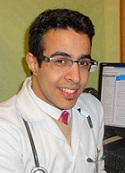 Aws AlMufleh, MD, MPH’13
Aws AlMufleh, MD, MPH’13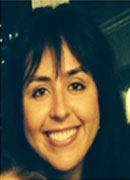 Vanessa Cutler, MPH ’12
Vanessa Cutler, MPH ’12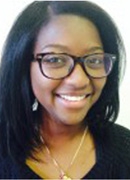 Claudia Davidson, MPH ’14
Claudia Davidson, MPH ’14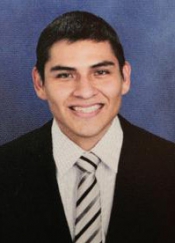 Harold Gil, MSPH ’13
Harold Gil, MSPH ’13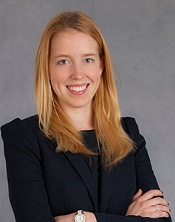 Isabel Griffin, MPH ’14
Isabel Griffin, MPH ’14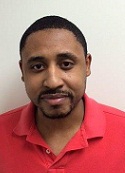 Jamal Jones, MPH’13
Jamal Jones, MPH’13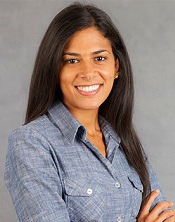 Maryann Koussa, MPH ‘13
Maryann Koussa, MPH ‘13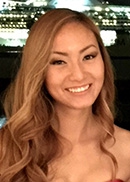 Jenelle Lin, MSPH ‘13
Jenelle Lin, MSPH ‘13 Karina Lizzi, MPH’14
Karina Lizzi, MPH’14 Alexa Rosen, MPH ‘13
Alexa Rosen, MPH ‘13 Selina Stasi, MPH ’14
Selina Stasi, MPH ’14 Kelly Withum, MSPH ‘13
Kelly Withum, MSPH ‘13
